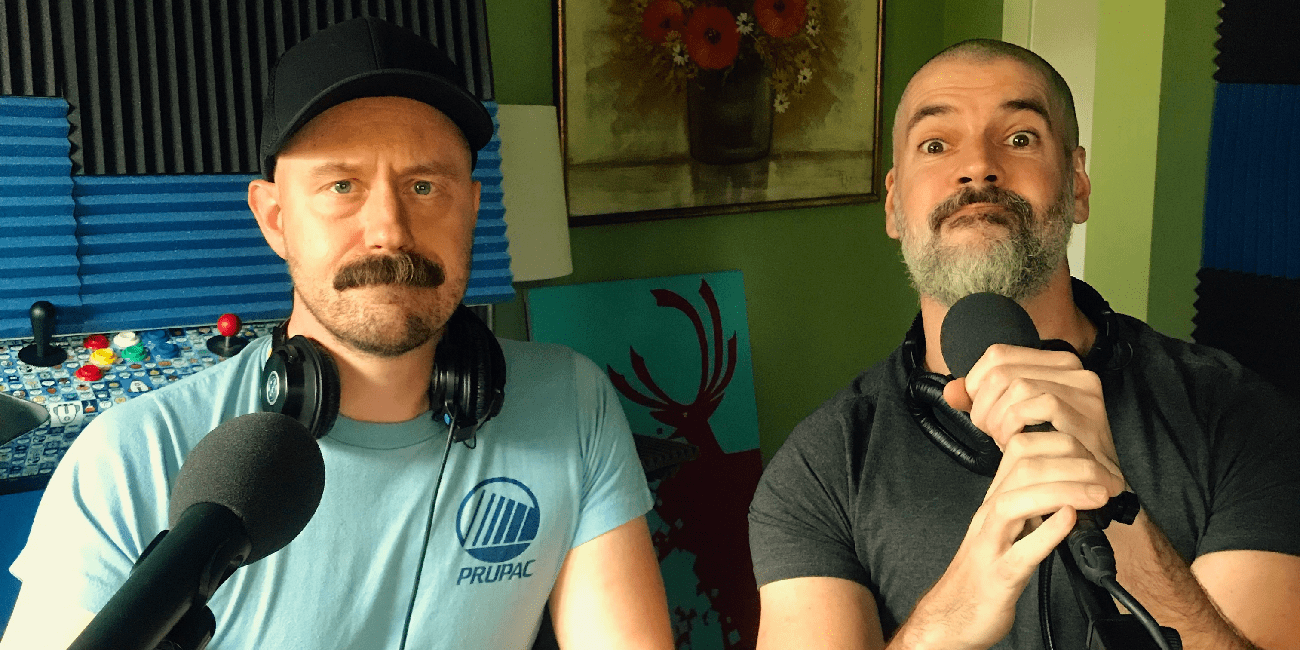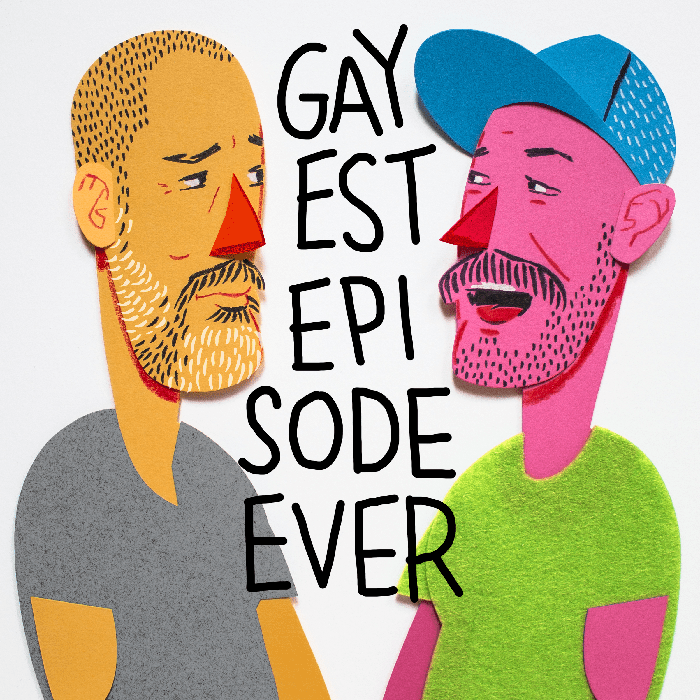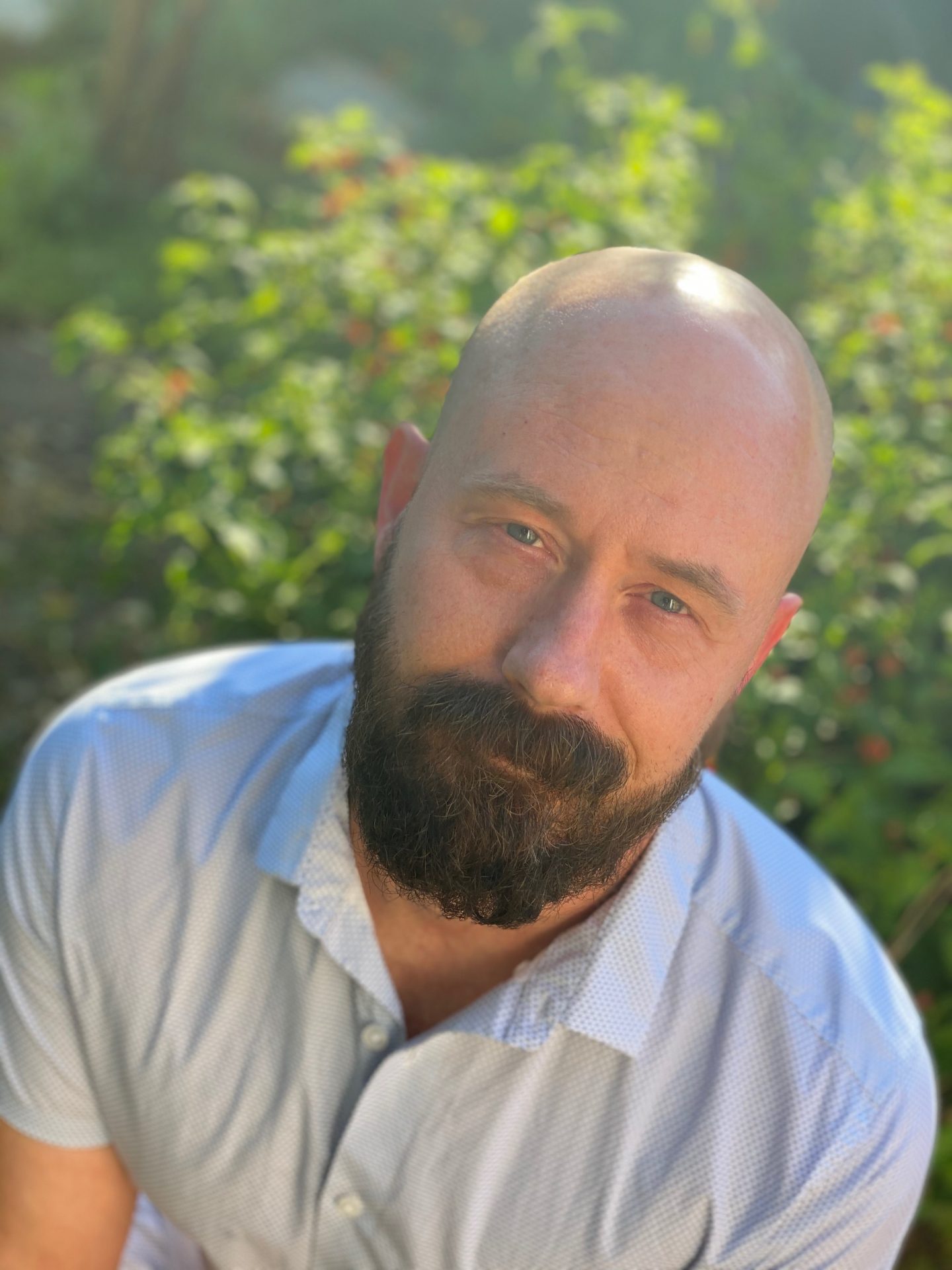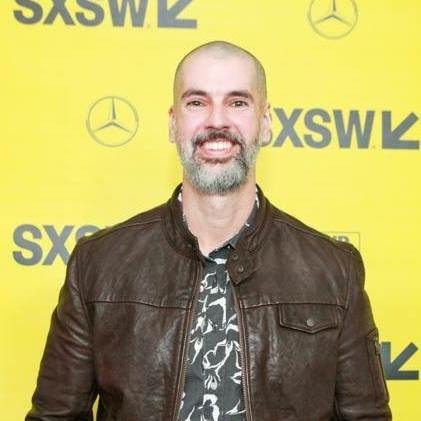
Have you ever rewatched a popular television show that, for one episode only, focused on something related to the LGBTQ community? And then you look back on it with confusion, anger, and frustration for how they portrayed or talked about us? Have you also looked at how we are treated on programs recently produced and aired and compared them to ones we tuned into while growing up?
Well, guess what, there’s a podcast for that! Drew Mackie and Glen Lakin (pictured above) make up the Gayest Episode Ever podcast where they dive into all things past and present, revolving around network television and the LGBTQ community.
We chatted with the duo exclusively on how this idea began, their thoughts on yesterday vs. today on this matter, shows we had no idea had an LGBTQ themed episode, and so much more.

Instinct: What inspired you to start this podcast ‘Gayest Episode Ever’?
Drew: Literally, I searched to see if a podcast exactly like this existed. It did not, and so I decided that we should volunteer ourselves to look at how sitcoms have handled LGBT-focused Very Special Episodes. Aside from just getting to talk about TV, which Glen and I do all the time anyway, I was curious to see how well this very American form on entertainment could show us about how the country has shifted in its attitudes toward queer characters. It kind of has: from sissy stereotypes trotted out for easy jokes, to “angel gays” of the AIDS era designed to get sympathy from straight viewers, to more layered, flawed characters we’ve started to get today where their sexuality is a part of who they are but not all of who they are.
Glen: Aside from Drew asking? For me, it was the season one Cheers episode “The Boys in the Bar.” I remember being completely shocked at the nuanced, sensitive handling of queer issues on network TV in 1983, and it made me curious if this was a fluke or if classic sitcoms had been working harder on LGBTQIA representation than I had given them credit for.
You focus on LGBTQ themes of shows from yesteryear and today. Do you prefer one or the other? Because there’s a clear difference in how each have been portrayed based on our acceptance.
Drew: Every now and then we do a newer show, so we can talk about how LGBT depictions fare today, but I’m way more interested in old stuff, just because it’s fascinating how wrongheaded writers can be even when they’ve got good intentions of putting gay people in prime time. I was born in 1982, so I grew up watching 80’s family sitcoms, and it’s been really interesting to look closely at what I was watching and what messages it gave me about being gay or otherwise not adhering to the rules about how a boy is supposed to act. Earlier this year, we did an episode of Step By Step in which the dad is worried his son is going to go “soft,” and Jesus Christ — that was not good for nine-year-old me to see, absorb, and not question until way later in life.
Glen: I prefer talking about older shows, mostly out of respect for creators for current media. I’m a screenwriter myself so I try my best to not play critic. When looking back on classic TV, I can at least couch my criticisms as scholarly. I think shows today are trying their best, in most cases, to give LGBTQIA storylines and characters the nuance we’ve been demanding for decades. They’re not always successful, but I’d rather give them room to stumble and course correct than jump on every misstep.

Do you have a favorite episode that each of you like to dive into with your own thoughts?
Glen: I actually think the very first episode we covered, a season two episode of Frasier titled “The Matchmaker,” is my favorite to think about. The show used its “gay episode” to hang a lantern on criticisms that Frasier is “too gay” because he’s an intellectual who enjoys culture and the finer things in life. The episode felt like more than a one-off; we got to discuss how an LGBTQ storyline was used to better define the main characters and the series as a whole.
Drew: Last year, we covered this episode of Dinosaurs. Yes, the Jim Henson show that was on TGIF and had a bunch of people in giant dinosaur suits. I loved this show when I was a kid, and I was blown away to learn that it has a gay episode. It’s all done through an extended metaphor — the son realizes he has herbivore tendencies despite coming from a family of carnivores, and he ends up going to a veggie bar to experiment. It’s absolutely nuts that they got away with putting a gay storyline, even if thinly veiled, on what was totally a family show. And in doing research for the episode, I found out that they also did a two-parter that was a parody of America getting into the first Iraq War.
BTW, here are the links to those episodes:
https://www.gayestepisodeever.com/episodes/dinosaurs-gay-episode
https://www.gayestepisodeever.com/episodes/frasier-gay
Do you look back on some shows like ‘Sex and the City’ and ‘Will & Grace’ and realize how problematic they are with 2020 eyes? There was transphobic language on both during their time on air.
Drew: So Friends is a hot pile of garbage as far repeatedly implying that lesbians are intimidating and villainous and that it’s the worst thing for a straight guy to be mistaken for being gay. The writers say that their lampooning the fragile ego of the heterosexual male, but when you’re a kid watching everyone crack jokes about Chandler seeming gay, you can really take that to heart. Will & Grace is really complicated for me. I understand that it introduced a lot of viewers to gay characters that made them feel like they understood queer folks a bit better, and it probably did advance the national conversation about LGBT rights. But because it was a kind of gay culture ambassador, it also made a lot of people — hetero, gay and “figuring it out” alike — think that gay men were these metropolitan, well-dressed quippy creatures whose interests were limited to a narrow set of stereotypical ones.
Glen: I think both shows are harder to watch now. Will & Grace reminds me of the stereotypes I constantly failed to live up to as a young gay man, and Sex and the City instilled me with such unrealistic relationship expectations. And, yeah, there’s that truly awful third season finale that jumps to mind in terms of problematic representation. Both shows hitched their horses to rising visibility (dare I say popularity) of gay culture in the late 90s/early 2000s.

What are your thoughts on LGBTQ representation in the media today and furthermore what do you hope to see more of in the future that they aren’t justly doing right now?
Glen: We’ve made a lot of progress, at least in terms of gay and lesbian representation. You might even see multiple queer characters on a mainstream show with storylines that don’t revolve around their sexuality. The real strides are being made in children’s entertainment, particularly animation. Shows like Steven Universe and the Dreamworks reboot of She-Ra are not only giving kids LGBTQ role models but doing the heavy lifting of questioning gender stereotypes. The real work ahead of us is seeing more/better representation of the trans community, as well as bi/pan characters that don’t feel like an afterthought.
Drew: Yeah, there is a character on the new Ducktales who has two dads. That is the craziest thing to watch, having grown up on the original series back in the day. As for sitcoms, having more than one character who is gay or more than one character who is a lesbian is always interesting, because then it’s not one character needing to shoulder all of the representation. If there are two of a kind, then you get more diversity — ethnically, age-wise, body type-wise, personality-wise, what kind of storylines they get, where they are in life. And that is always great because people who are watching, whether they’re old or young, get the idea that there is more than one way to be queer and that we’re all okay doing what we’re inclined to do.
